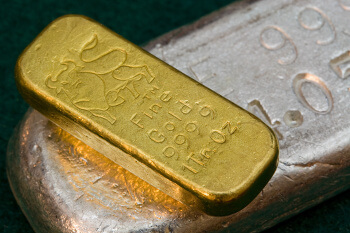As similar as the two may be in terms of wealth accumulation, both economic systems have several differences that significantly distinguish one from the other.
Summary Table
| Mercantilism | Capitalism |
| Accumulate wealth for the country with the state controlling the whole economy. | Usually operates without government intervention. |
| Export commodities and accumulate precious metals such as gold and silver. | Generate profit to expand industry. |
| High tariff rates on foreign goods are imposed. | Free trade and low tariff rates are imposed. |
Definitions

Mercantilism was a popular economic system in Europe from the 16th to the 18th century. It was based on the idea that the state must have control of the nation’s economy in order for the government to become more powerful, usually at the expense of another competitor nation.
This economic system supported the idea that wealth of the state (and the power it wields) can only grow by increasing exports and accumulating precious metals such as gold. Medieval feudal systems exercised in countries such as France, England, and the Netherlands were the earliest forms of mercantilist states.
A mercantilist economy is a highly protectionist system as the imports of manufactured goods were imposed with high tariffs. Colonized territories are not allowed commerce with other nations. Precious metals were not exported, although the export of other goods was awarded with subsidies. Consumption of domestic resources was maximized while workers’ wages were kept at their lowest. Manufacture of goods through research was highly encouraged with direct support from the state. Such policies of wealth accumulation have frequently been the cause of many wars and colonization.

Capitalism is an economic system where the means of production (factories, raw materials, natural resources) are privately owned and centered on the generation of profit. A capitalist state is characterized by the accumulation of capital, private ownership, market competition, wage labor, price system, and buyer-seller transactions. Investments and policymaking are done by private companies while the distribution and prices of goods are primarily dictated by competing markets.
Although it is common for state-owned companies to exist in a capitalist economy, properties are largely owned by companies or individuals, thus investment and policymaking are handled only by them. The government can only intervene in issues such as environmental protection or workers’ rights, just like it is practiced now in places like the U.S. and Europe. In contrast, the Chinese government intervenes with their country’s economy to remain one the richest nations in the world.
Experts have different viewpoints about capitalism but are in agreement in the different forms it has taken all over the world. Free market capitalism is where the laws of supply and demand are free from any form of government control, and consumers and the open market dictate prices of commodities. Welfare capitalism is based on social welfare policy and industries with skilled workers. Businesses are required to provide welfare benefits to their skilled workforce. State capitalism is the third type of capitalism based on state-owned enterprises, where the government acts as a huge corporate entity and has control of the nation’s economy.
Mercantilism vs Capitalism
Many agree that one came from the other, but what is the difference between mercantilism and capitalism? Mercantilism was based on the state accumulating wealth and power by controlling the nation’s economy at the expense of another. In contrast, most forms of capitalism operate without government intervention. Exporting commodities and accumulating precious metals such as gold and silver are critical in expanding a mercantilist nation’s power, influence, and wealth. Capitalist economies are driven by profit generation as a means to sustain economic growth and prosperity.
Mercantilism was focused on local consumption while wages are kept at their lowest level. Also, colonies are not allowed to do business with foreign markets, and high tariffs were imposed on foreign commodities. Capitalism encourages free trade and lower tariffs to ensure the continuous flow of foreign trade.






